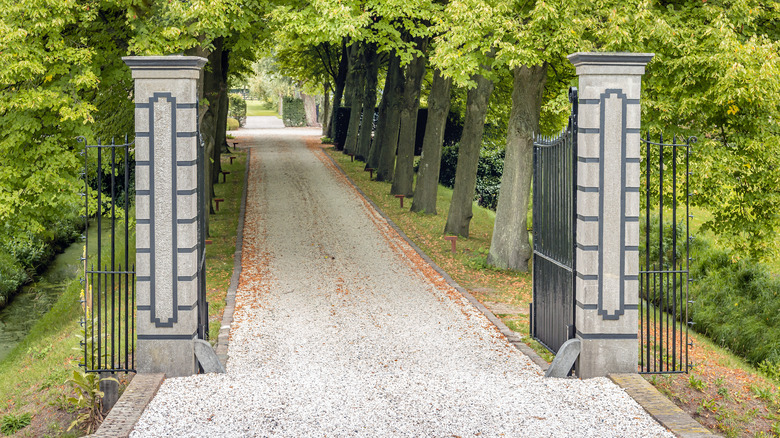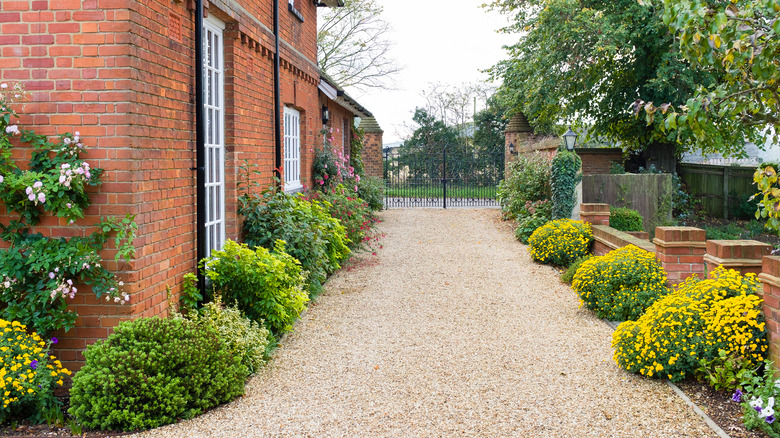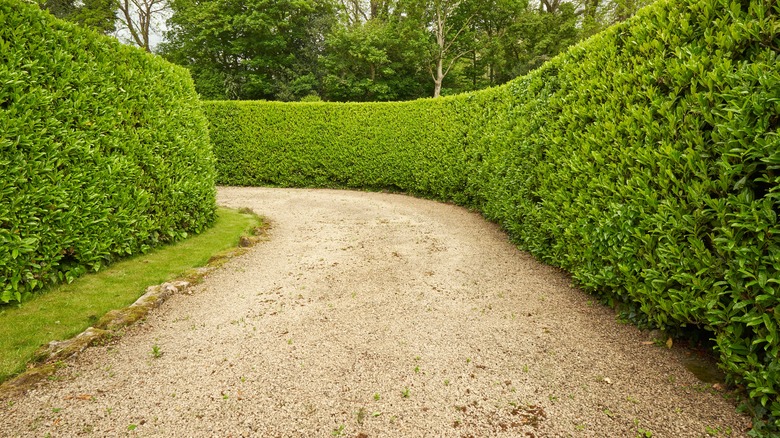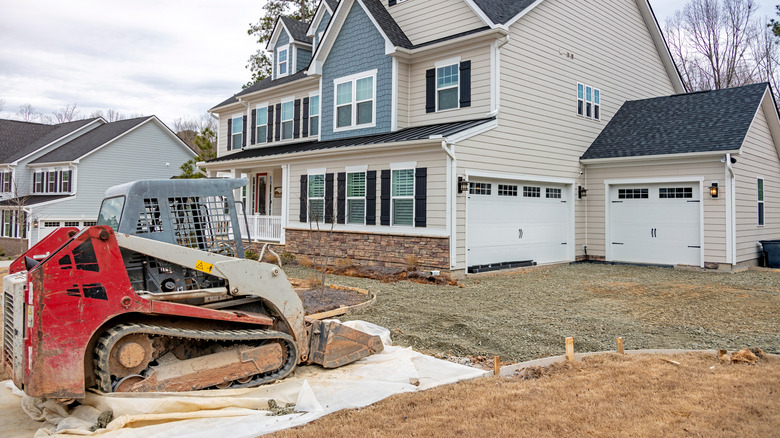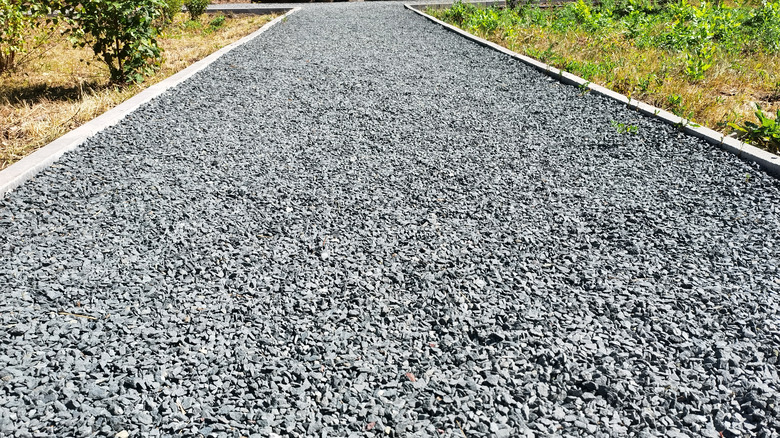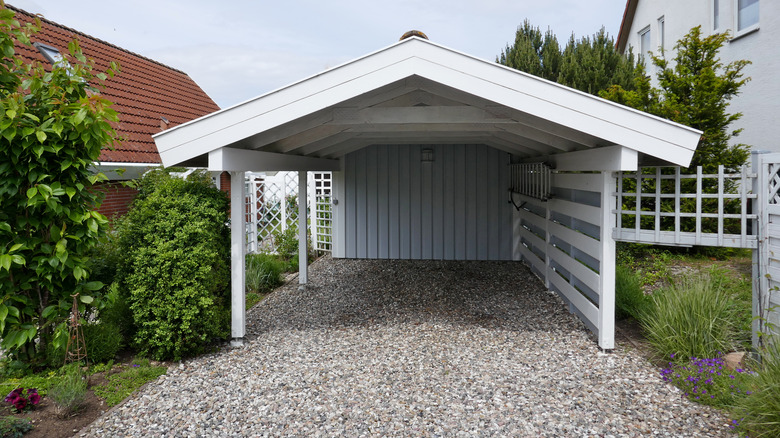5 Pointers For Maintaining Your Gravel Driveway
Gravel is a good driveway material for homes in the country and urban regions for all the right reasons. It is relatively inexpensive compared to the other options, and it could easily last a lifetime if installed correctly, mentions Fixr. In contrast to concrete and asphalt, gravel is available in several colors and size options and could significantly increase the curb appeal of your home. Initially, homeowners did not consider this paving variety an ideal driveway material for fear of its heavy maintenance. Well, in their defense, they were right, but it is also worth mentioning that anyone can preserve their gravel driveway with some basic knowledge. In fact, you can quickly do the maintenance by hand for smaller driveways.
Gravel driveways that are professionally installed will need less maintenance than those put in place as a DIY project. The major problem associated with gravel is the formation of potholes from regular use and also the growth of weeds. With this in mind, how do you keep your gravel driveway in tiptop shape? Here are a few tips to help you deal with the aforementioned problem and a few other minor issues. Tag along!
1. Deal with the weeds
As mentioned above, weeds are a significant problem for gravel driveways; they can quickly transform a beautiful private road into an ugly rugged jungle. Fortunately, dealing with weeds on gravel driveways is relatively easy and won't need the services of a professional. There are several approaches to take, but they all depend on the level of invasion. The fastest and most effective way of dealing with weeds on gravel driveways is using weed killers, mentions Flowerpotman. However, when shopping for weed killers, be sure to go for the long-lasting options.
Some of these herbicides only kill the weeds and later disintegrate into the soil allowing for future plant growth. Alternatively, if the weed growth is not extensive on the driveway, you could easily uproot them by hand. Weeds can be fast-growing nuisances, so it is in your best interest to deal with them as soon as they appear to prevent spreading.
2. Fix potholes
It goes without saying that gravel is naturally loose, and over time, the daily wear and tear leads to the development of potholes on the driveway. Other than being a nuisance to drive over, potholes can easily cause problems to your vehicle when left unattended. Some issues associated with regularly driving over potholes include tire deterioration, poor steering wheel alignment, and damaged rims. Fortunately, repairing the potholes on the gravel driveway is a simple process that you can fix easily in three easy steps, according to The Palmen Dodge Chrysler Jeep RAM of Racine.
First, you must create a deep hole until you remove the loose soil. You will also need course gravel and the size that matches the gravel on the surface. Fill the first three inches with the course gravel before packing it down with a hand tamper. Top off the remaining space with the gravel that matches the ones on the surface and tamp it in place as well. You don't have to worry about compacting this patch too much; once you drive your car over a few times, everything will settle.
3. Grade the gravel regularly
Part of gravel maintenance is grading regularly; Done Right Power Equipment mentions that grading should be done during springtime and fall. Grading during spring allows you to repair the damage done by winter, and fall grading prepares your driveway for the winter. Grading is necessary for gravel driveways. Gravel often collects and compacts in one spot forming potholes and water puddles, and grading can easily fix these problems.
Usually, mechanical grading yields the best results; the machines are able to dig deep into the layers and also distribute the gravel better than you would do by hand. You will need to attach a grade blade to a tractor for the task. Also, when grading your driveway, remember to crown the surface by creating a gentle slope on both sides, which will help direct water away from the site. Grading will help reduce the frequency of topping up the driveway with new gravel, which is an extra cost ranging between $50 and $450, according to Fixr.
4. Invest in quality gravel
Maintenance of the driveway gravel might mean sprucing up its appearance on your private road. So, if it reaches a time and you need to upgrade the driveway and change the color of your gravel, there are many options on the table. Gravel is not only available in several colors but also in different sizes and shapes. There are three major types: pea gravel, dense grade, and river rock. Bray Topsoil & Gravel mentions that the pea gravel is usually round and doesn't interlock well; therefore, it easily slips.
Riverrock, on the other hand, is smooth and might not be ideal for driveways on slopes. Thick gravel, also called #57 stones, is the best gravel for drainage that fits closely together. Over time, it binds together nicely without forming a solid surface that prevents water from draining correctly. Dense grade gravel is relatively inexpensive, costing $64 per ton, according to Georgia Landscape Supply.
5. Get long-term solutions
Let's face it, a lot of the DIY solutions to the pothole and drainage problems on gravel driveways are only temporary; chances are they will crop up again soon. Yes, these DIY fixes provide quick solutions, and you will need to consider proper maintenance if the problems emerge time and again. When considering proper care, you will need equipment for some tasks. Whether it is a manual tamper for compacting gravel or a grade blade for grading, there are two options, renting or purchasing the equipment.
Gravel maintenance is not an everyday task, so making an economic case for why you need to purchase the equipment won't be easy. Alternatively, instead of going through the trouble of renting or buying equipment and gravel, you can always hire professionals for the task. According to HomeGuide, installing new gravel, resurfacing, and re-grading a gravel driveway costs between $1 and $3 for every square foot. While this might sound expensive in the beginning, it will save you a lot of trouble and headaches down the road.
